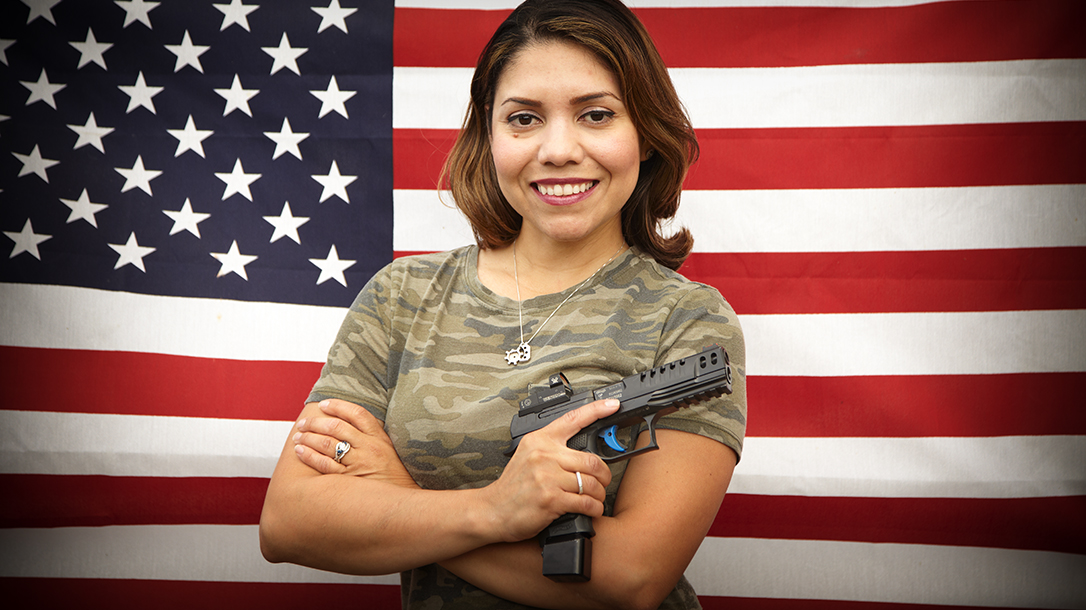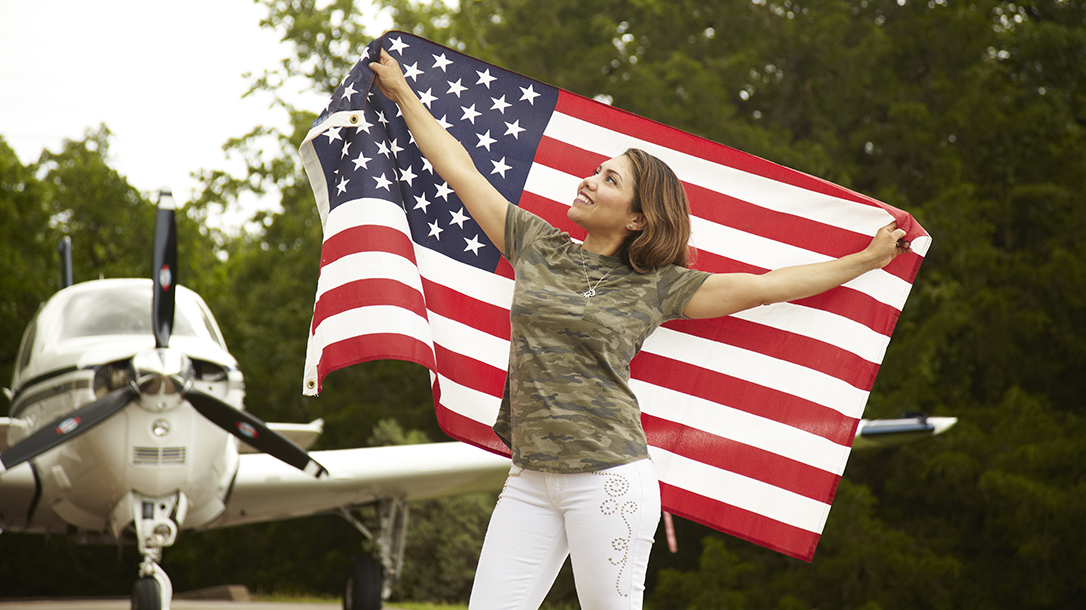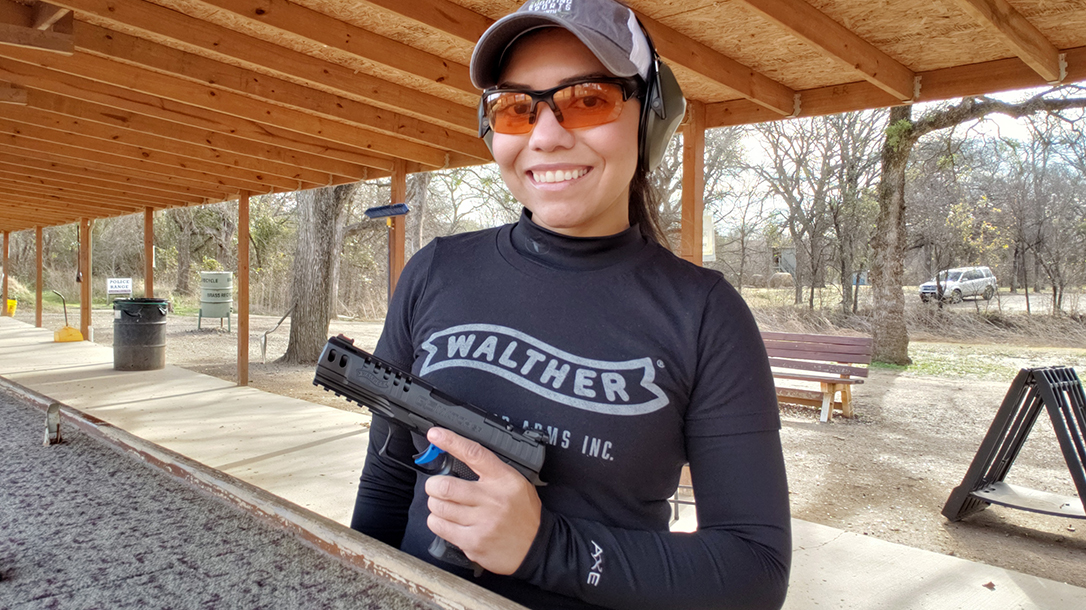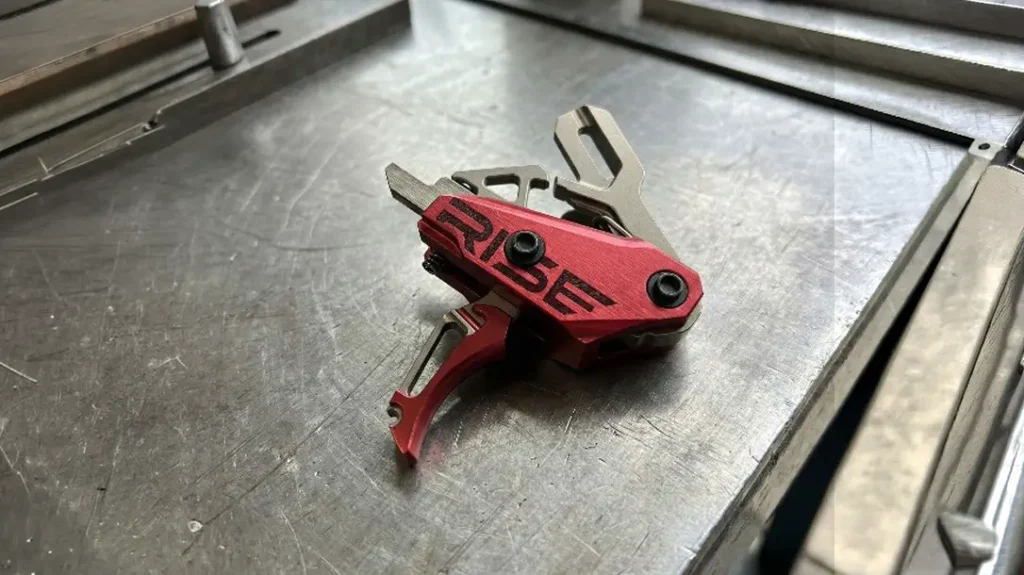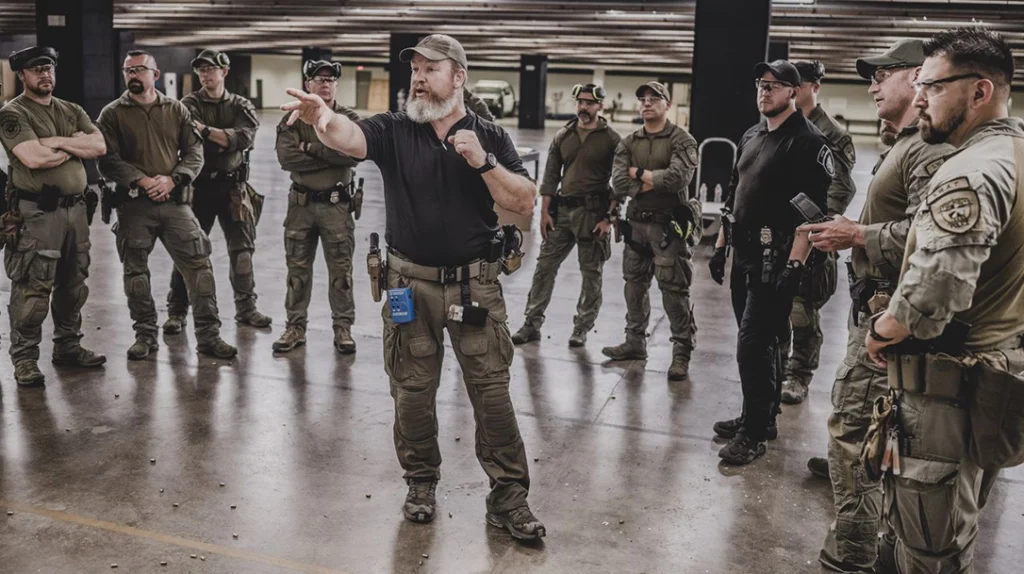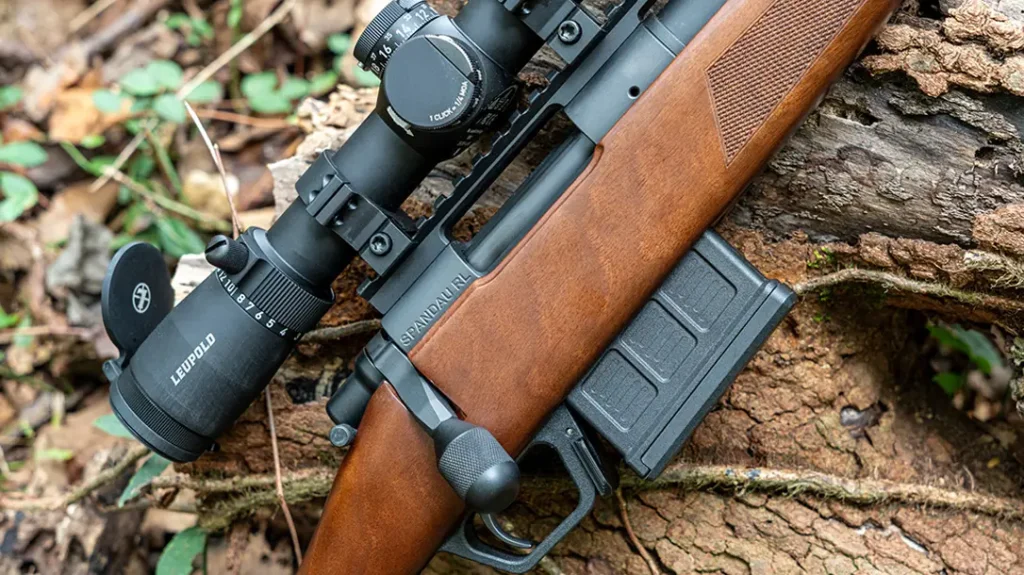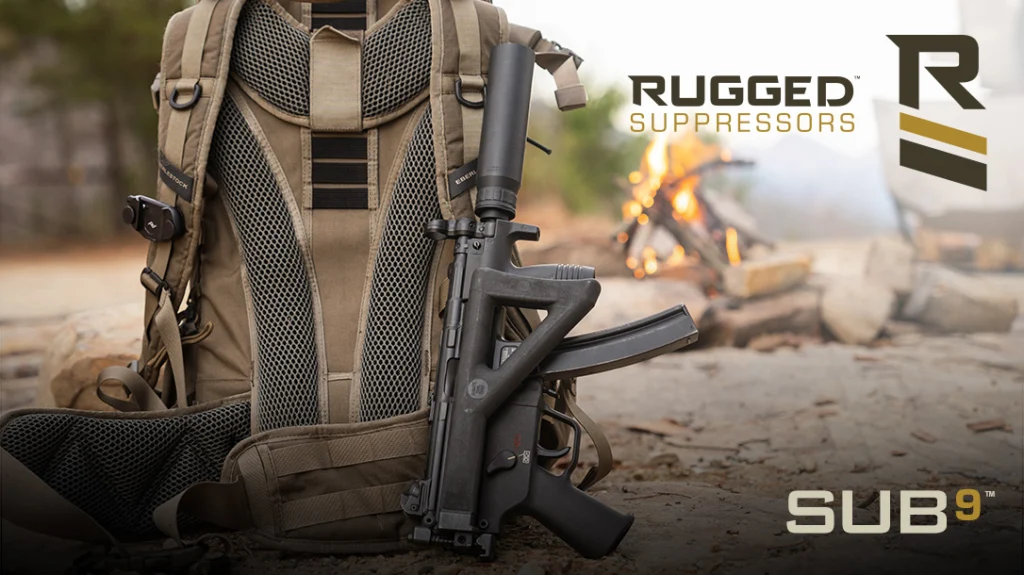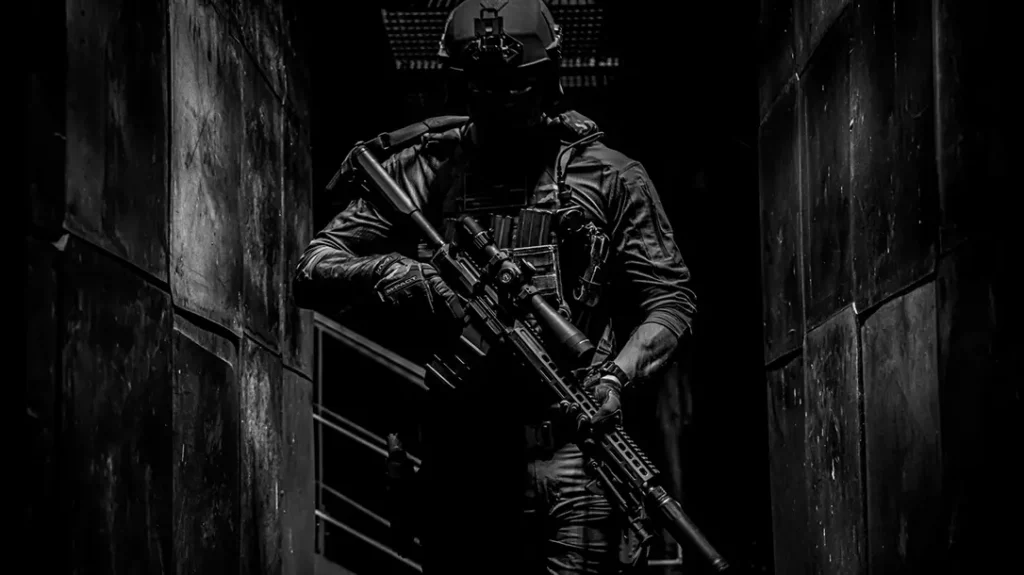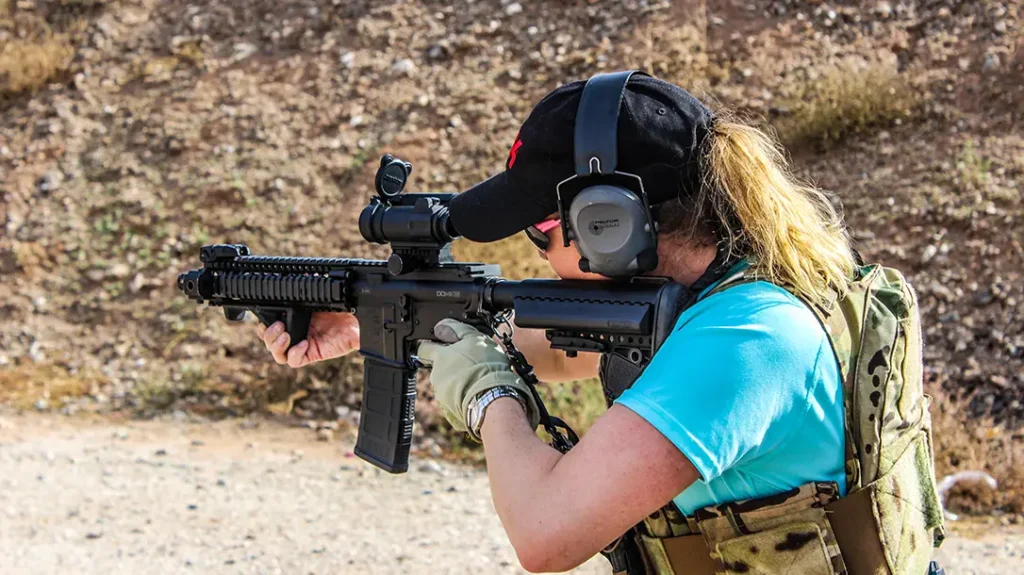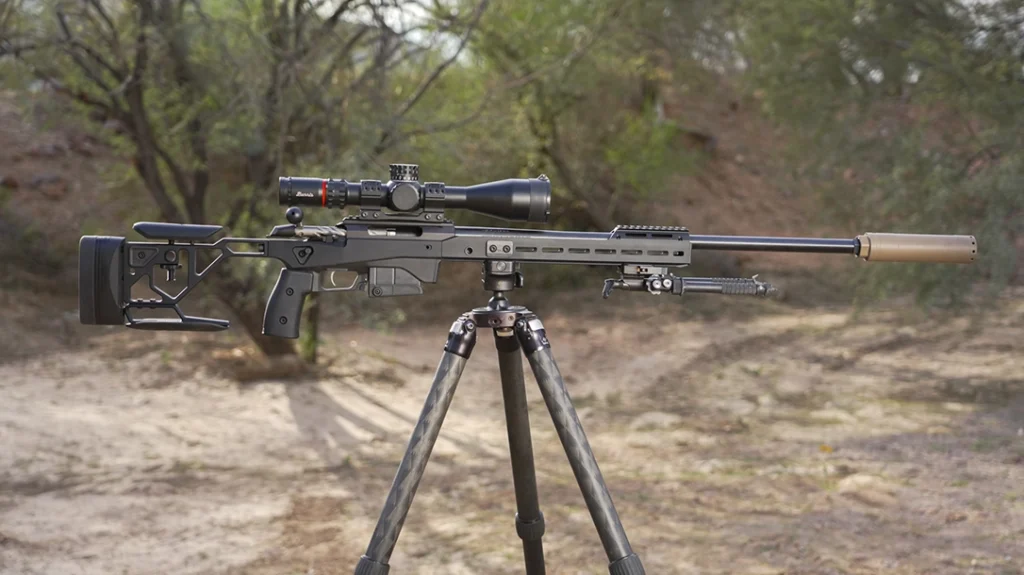Editor’s Note: As this issue of Ballistic was heading to press, a major uprising of the unarmed people of Venezuela was in full swing against the country’s dictator, Nicolás Maduro, and his brutal regime. As of May 2, 2019, at least four people have been killed and more than 200 wounded over several days of massive demonstrations.
As I write this, the people of Venezuela are foraging in dumpsters for scraps of food and collecting water from a polluted river for their needs. Just before the elections of 2012, the country all but outlawed the private ownership of guns, making it impossible for citizens to take back their government. Venezuela is no longer able to feed its own people despite having the largest oil reserves in the world.
Advertisement — Continue Reading Below
An Introduction to Gabby Franco
One shooter who knows this all too well is Gabby Franco, who was born and raised in Venezuela before coming to the U.S. You probably recognize her from Seasons 4 and 5 of the History Channel’s hugely popular reality show Top Shot. Now an American citizen, she is a 38-year-old mother of a 2-year-old. She married a soldier who saw action in Iraq and Afghanistan as an infantryman and now serves as a recruiting station commander. Gabby is also currently a brand ambassador and shooting team member for Walther Arms.
Despite her busy schedule, I recently caught up with Gabby to get her perspective on current affairs, overcoming adversity and more.
What was your childhood like?
My childhood is filled with happy memories. In Venezuela, my family had all the resources we needed, even though we were below the middle-class bracket. My dad was a machinist, and my mom was a high school teacher. At one point, my father decided to start his own business, so we lived for almost five years on my mom’s salary.
Advertisement — Continue Reading Below
Back then, I felt safe. We never encountered anything terrible or dangerous. I remember that as a teenager I would walk about 2 miles to a bus stop. Not because there wasn’t one closer, but because I loved walking. Nowadays, things are different. The value of life is almost lost in Venezuela. For example, criminals will kill you just to take the nice shoes you are wearing. Furthermore, if you give the criminal your shoes, he or she will still kill you because you didn’t fight back. In their eyes, you are a coward, and your life is worthless.
When did your love for shooting begin?
My father introduced me and my siblings to the shooting sports, and I was 11 years old when I started practicing Olympic shooting. At first, it looked easy and simple. However, I quickly learned that shooting a bullseye consistently was not an easy task. I did not care that it was a demanding discipline. I kept going to the gun range because I wanted to be good at it. Because of my dad, my sisters and I became members of the state shooting team, and we were national champions for several years.
We kept our air pistols and .22 LR sport pistols in the house to dry fire every night and every day we missed practice. So even my brother, who is 10 years younger than me, grew up surrounded by firearms.
Advertisement — Continue Reading Below
Tell us about your Olympic experience.
I trained four to five hours a day six days a week. I never imagined being in the Olympic Games, but in 1999, I won a silver medal at the Pan American Games in Winnipeg, Canada, and that earned me a slot to go to the Olympic Games. As far as Olympic shooting goes, I was the first woman to represent Venezuela.
I remember that once I got on the airplane to go to Sydney, Australia, in 2000, I said, “This is it. I am an Olympian!” And it ended up being one of the most nerve-wracking competitions for me. I think I could hear my heartbeat. But it was terrific being among the best of the best in the world.
The experience was unforgettable, unreal. All the athletes were excited to be at the Olympics, even those who didn’t win, including myself. We were celebrating our dedication to greatness, the sport we loved, and the fact that we were Olympians.
Advertisement — Continue Reading Below
How did things change when Hugo Chávez took over?
In Venezuela, the state sponsors athletes, so they provided me with everything I needed for seven years until Chávez came into power. One of his resolutions was to limit the number of guns in civilian hands. That started hurting gun shops and gun ranges. Then, the importation of firearms and ammunition could only be done through the government. Soon after, we experienced shortages of pellets and .22-caliber ammunition, which made it much harder to practice. I knew things were only going to get worse.
During his presidential campaign, Hugo Chávez sold socialism to the people as the solution to the problems Venezuelans faced. Chávez and many others blamed the previous politicians for being corrupt and offered a change. Venezuelans wanted to get away from corrupt politicians, and socialism was shown to us as the perfect solution. However, what people forgot is that corruption exists everywhere, and it will so long as people remain corruptible.
Were guns banned outright overnight, or was the process slower?
Venezuela went through a slow process of gun confiscation. First, it was the registration of firearms. Gun owners had to go to Caracas to complete the process, something that was difficult for those who lived far from the capital. Gun registration was also a difficult position to be in because people wanted to be able to have a firearm to protect themselves and their families. Furthermore, they knew what the government was up to and the inevitable end of it. As years passed, fewer people were allowed to own firearms, and the complete confiscation of guns took place in 2012. Currently, criminals are heavily armed in Venezuela, and the rest of the population have no equivalent means to defend themselves.
Advertisement — Continue Reading Below
You came to the United States in 2002 and got on Top Shot in 2012. Tell us about the 10 years in between.
It was difficult for me to leave my family and career to come to the United States. I started working in a gun shop because it’s what I knew. I just wanted to continue to be involved in the industry. Then I started getting into tactical and USPSA shooting.
Just before Top Shot, I was going through one of the most challenging times of my life. The man I married left me, and I lost my job a week later. All of the debt was in my name, so I felt like I hit rock bottom. Some days I was OK, but many others I was lost, and I didn’t know what to do.
“Don’t focus on the bad shot. Focus on what you need to do now.” That was one valuable lesson I learned from shooting that helped me move away from the darkness of helplessness. And that’s what I did! I focused on what I needed to do. I thought, “Well, I went to the Olympic Games because I know one or two things about marksmanship, so I’m going to start teaching people how to shoot precisely.” And that’s how I became a firearms instructor.
Advertisement — Continue Reading Below
My brother is the one who pointed Top Shot out to me. I never imagined myself on TV, but I knew that I had nothing to lose. So, I applied. One thing about me is that I don’t let my fears prevent me from doing something new. I don’t care if something is out of my comfort zone. I just do it! Why not?
Top Shot was a super-fun experience. One thing I can say from my 38 years of life is that whatever you do, do your best. Because you never know when that effort may come back to help you. I trained hard to be the best I could be, and I applied many of the things I learned as an Olympic shooter to my Top Shot performances.
You were with Remington, and now you’re with Walther. How did that come about?
Advertisement — Continue Reading Below
Walther came to me at just the right time. I was relaxed and comfortable with what I was doing in the industry, and they came to me with the idea of me becoming a brand ambassador and blending their target and defensive lines of guns.
I can talk as confidently about their Olympic firearms as I can about the Walther PPQs. Walther also likes what I have been doing in the industry, not only supporting competitive shooting and the Second Amendment, but also promoting the sport to women. And I loved that.
Sometimes, a firearms company will come and say, “We need you because you’re a woman.” But I am more than a woman. I am a human being with desires, with dreams, with a history of things I’ve done. You can’t approach me with that mentality.
Advertisement — Continue Reading Below
During my Olympic career, I used a Walther GSP .22 LR pistol. So, it was a combination of nostalgia and the fact that I always trusted that pistol; it never failed me in my competitions. I love the idea of representing the brand I used at the Olympic games!
What are you most proud of?
My son, David Antonio, who is 2 years old. I call him my “human project.” This is such a critical time in his life, and the foundation of his personality is being formed, so I spend a lot of time with him. He’s already reading and can count all the way to 100. He has been swimming since he was 11 months old. I’m currently teaching him about the solar system and the world we live in. I’m doing everything I can to give him the tools to be a great person in the future.
What other goals do you want to accomplish in the future?
Every day is an opportunity to learn, to accomplish and to explore. So, I will be graduating from college with honors. That is my personal goal. I have a few more books in mind that I need to sit down and write. One will be about my divorce, and that life goes on afterward. Another will be about where strength comes from, especially when we talk about women.
My goal this year is to take some other military wives with me to the range for some trigger time. I love doing that kind of stuff! Also, I am training hard to get back to where I was before my pregnancy. I want to start winning matches and eventually become a national champion.
What advice would you give the next generation of voters in this country?
Get out of your comfort zone! I would tell them to talk and read about the past and to learn about the world. Young people get so wrapped up in the bubble called the United States that they don’t see the suffering in other countries. It is sad that young people who advocate for socialism, for example, don’t appreciate how blessed they are here in the U.S.
It is true that we are not a perfect country—of course not. Our country is run by imperfect beings. However, we are by far the best country in the world. And anyone who calls themselves a socialist needs to look beyond their current situation and think critically towards the future. In other words, they need to think [and talk] objectively instead of emotionally.
This article is from the June/July 2019 issue of Ballistic Magazine. Grab physical and digital copies at OutdoorGroupStore.com.
